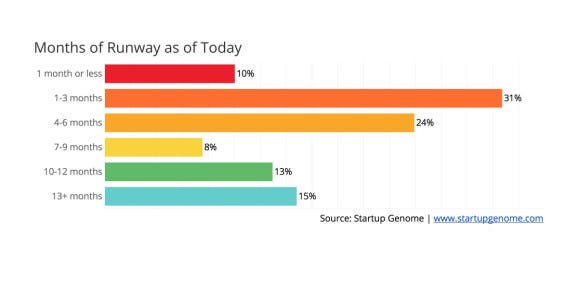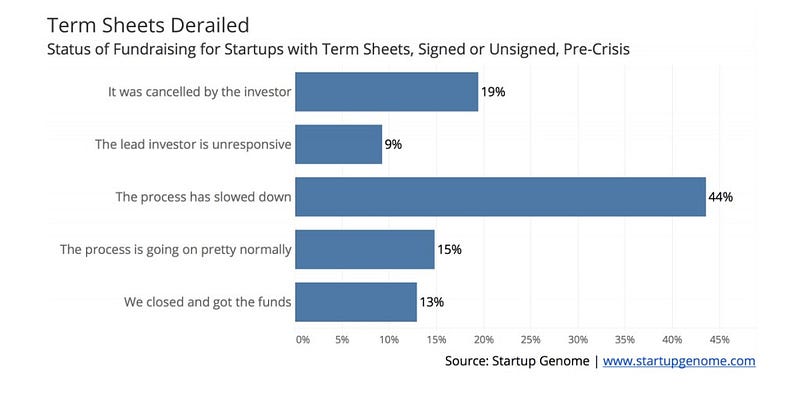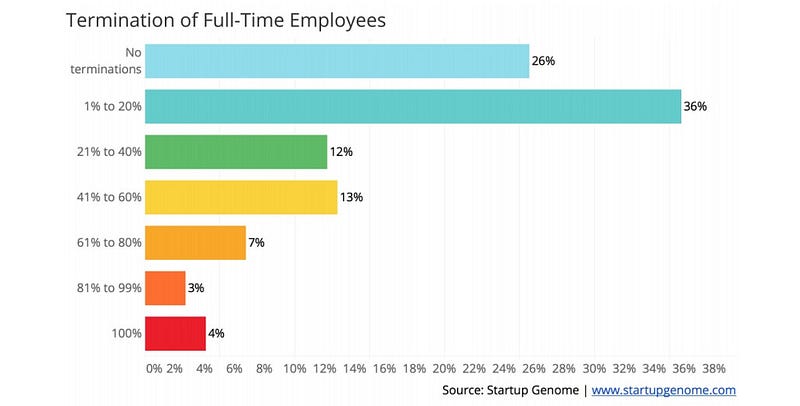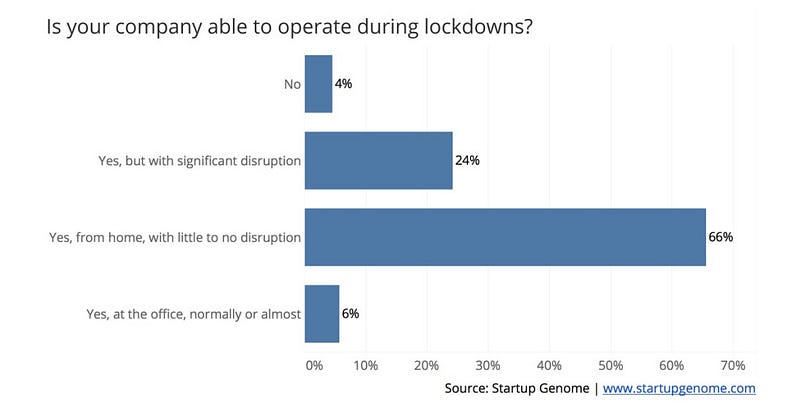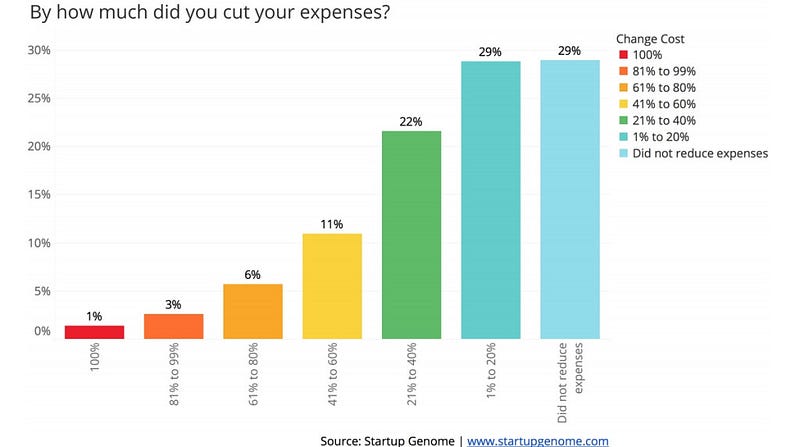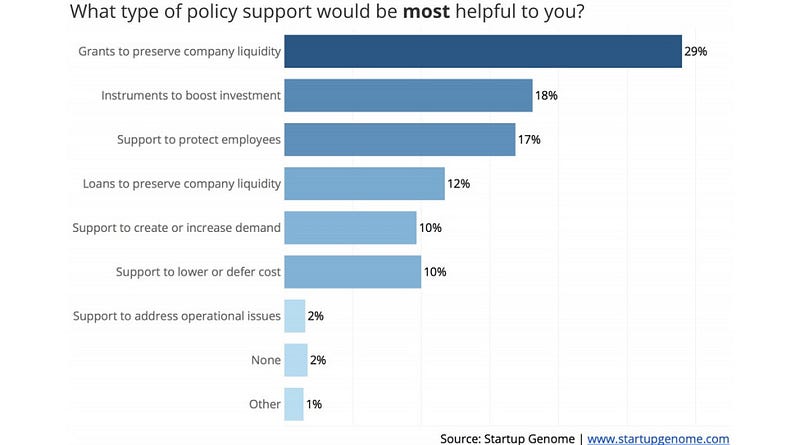Scaling Secrets Exposed: Startup Genome Report Delivers Game-Changing Insights
In a momentous unveiling at the Global Entrepreneurship Congress in Melbourne, the Startup Genome has introduced “The Scaleup Report,” a definitive exploration of the intricate factors that propel startups toward the illustrious realm of scaleups. Presented by JF Gauthier, the Founder and CEO of Startup Genome, this report unravels the enigma behind what distinguishes prosperous scaling startups from those that falter. Moreover, it proffers practical insights of immense value to entrepreneurs, enterprise support organizations, and policymakers fervently endeavoring to elevate the proportion of startups achieving the coveted $50 million+ valuation.

This groundbreaking report derives its strength from an unparalleled treasure trove of data sourced from the most exhaustive dataset on startup ecosystems. This rich resource harnesses the wisdom accrued over a decade of rigorous longitudinal research, scrutinizing hundreds of objective metrics associated with tens of thousands of startups that have participated in Startup Genome’s comprehensive founder survey. Enriched further by contributions from eminent thought leaders, including the Global Entrepreneurship Network and Dealroom, the report stands as a testament to over a decade of independent research, assessment, and policy strategy work undertaken by Startup Genome.
read also Nigerian Auto-tech Startup Fixit45 Raises $1.9 Million in Pre-Seed Funding Round
Key revelations from “The Scaleup Report” are as follows:
- Founders’ Strategy for Scaling: Founders aspiring to enhance their prospects of scaling must ensure they offer stock options to all employees, cultivate more than five global connections to top ecosystems, and enlist at least three advisors for their nascent ventures.
- Local Connectedness and Revenue Growth: Startups wielding a Local Connectedness Index score of 6 or above achieve a 5.1% scaleup rate, a significant boost compared to the 3.8% rate for those scoring 2 to 4. Higher Local Connectedness correlates with revenue growth that’s twice as rapid.
- Global Connectedness and Scaleup Success: Scaleup success directly correlates with Global Connectedness, with highly connected startups boasting a 3.25x higher chance of scaling. Ecosystems deeply intertwined with top global counterparts, such as Silicon Valley, New York City, and London, see their startups attain global prominence at a substantially higher rate.
- Global Scaleup Leaders: The United States, China, and the United Kingdom reign as the top countries by the number of total scaleups, with the U.S. leading the pack with 7.1K scaleups — 4.8x more than China and 11.5x more than the U.K. India, Canada, Germany, Israel, France, South Korea, and Singapore follow closely.
- Venture Capital Investment: Top countries for VC investment in scaleups include the U.S., China, India, the U.K., and Germany. North America commands a lion’s share, contributing to 55% of global VC investments in scaleups, with the U.S. alone accounting for 53%.
- Global Expansion and Revenue Growth: Early-stage startups with a global customer base (more than 50% foreign customers) experience revenue growth that is twice as swift as those without. For non-U.S. startups targeting the global market initially, the scaleup rate doubles.
- B2B and Global Focus: B2B and mixed startups that set their sights on the global market from the outset enjoy higher scaleup rates than B2C startups. B2B startups that initiate global targeting from day one achieve a remarkable 6.8% scaleup rate.
- Serial Founders and Motivation: A third of all current scaleups are founded by serial entrepreneurs, who exhibit an 85% higher scaleup rate compared to their counterparts. Founders driven by a desire to accumulate wealth exhibit the strongest correlation with scaleup success, followed by a desire to effect change and create exceptional products.
- Funding Sources: Founders relying on friends for funding are more likely to foster scaleups than those with personal or family resources.
- Age Bracket and Scaleup Success: Scaleup success tends to peak among founders in the 26–40 age bracket, both in terms of scaleup rate and the absolute number of scaleups.
JF Gauthier, the visionary Founder & CEO of Startup Genome, aptly remarks, “The quintessential billion-dollar question has always been what characteristics, behaviors, and decisions of early-stage startups significantly increase your chance of success at scaling.” The Scaleup Report, a product of 11 years of exhaustive primary research involving nearly 100,000 startup founders globally, provides empirically grounded answers to this pivotal question.
Jonathan Ortmans, Founder and President of the Global Entrepreneurship Network, acknowledges, “The Global Entrepreneurship Network is proud to partner with Startup Genome on groundbreaking new research in The Scaleup Report to equip policymakers, investors, and support organizations with a timely, independently-verifiable way of identifying scaleups.” He further affirms the report’s role in delineating the critical success factors that set apart flourishing scaleups.
read also WhatsApp Adds Rival in-App Payment Options in India
Yoram Wijngaarde, Founder & CEO of Dealroom, emphasizes, “The data shows definitively that startups can scale anywhere in the world.” He underscores that the pace of global distribution in entrepreneurship and venture investing is accelerating, marking the advent of a global innovation era.
To delve deeper into this comprehensive report, access it in its entirety at Scaleup Report (available since September 20).
scaling startup secrets scaling startup secrets scaling startup secrets
Charles Rapulu Udoh

Charles Rapulu Udoh is a Lagos-based lawyer, who has several years of experience working in Africa’s burgeoning tech startup industry. He has closed multi-million dollar deals bordering on venture capital, private equity, intellectual property (trademark, patent or design, etc.), mergers and acquisitions, in countries such as in the Delaware, New York, UK, Singapore, British Virgin Islands, South Africa, Nigeria etc. He’s also a corporate governance and cross-border data privacy and tax expert.
As an award-winning writer and researcher, he is passionate about telling the African startup story, and is one of the continent’s pioneers in this regard







